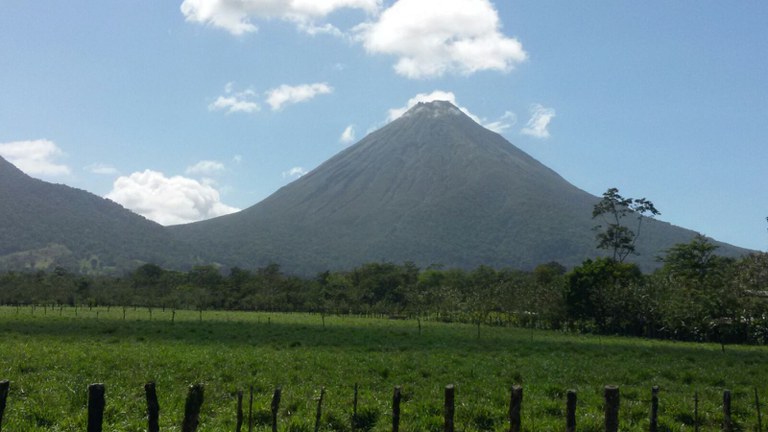Posted: March 1, 2017
Dr. Laura Ramos-Sepúlveda presented in Costa Rica at the APS meeting which incoming faculty member Dr. Paul Esker helped to organize.
The American Phytopathological Society-Caribbean Division (APS-CD) Meeting was held February 26 to March 1 in San José, Costa Rica. The Organizing Committee included APS-CD President Dr. Paul Esker (incoming PPEM faculty member, Fall 2017) and Dr. Adriana Murillo-Williams (incoming Penn State Extension Educator, Fall 2017).
Dr. Laura Ramos-Sepúlveda had the opportunity to present her work titled "Targeting the bad and the ugly Pseudomonas spp. causing bacterial diseases in mushroom production," thanks to funding from the Office of Graduate Educational Equity Programs, Office of Postdoctoral Affairs, Committee on Institutional Cooperation-Professoriate Advancement Initiative, and her laboratory.
During the meeting, Laura discussed her research of white button mushrooms in the U.S., the challenges that growers confront with bacterial blotch diseases, her current objective to determine the epidemiology of bacterial blotch diseases, and her future goal to develop reliable management tools using bacteriophages and bacteriocins.
Meeting participants exchanged ideas, questions, and knowledge of the challenges and advances in crop losses, phytosanitary risks, and tropical diseases. The agenda included four oral paper sessions, a graduate student paper competition, a poster session, and a special session titled "Advances and challenges for the banana sector from the plant pathological point of view."
Keynote presenters were:
- Dr. Peter Cotty (USDA-University of Arizona, "Region-wide aflatoxin reductions for improved food security, income and health");
- Dr. Inga Zasada (USDA, "75 years of potato cyst nematodes in the United States: a case study for quarantine pests");
- Dr. Gerardina Umaña (Universidad de Costa Rica, "New approaches to control post-harvest rot in fruits");
- Dr. Carlos Urías (OIRSA, "Main phytosanitary problems in the countries of the OIRSA region").
The meeting was made possible due to funding support by ISASA, ThermoFisher Scientific, ClearDetections, Suministros Agroindustriales S.A. (SuAgro), Corporación Bananera Nacional (CORBANA), Organismo Internacional Regional de Sanidad Agropecuaria (OIRSA), and Agdia, Inc.
Meeting participants could spend additional time exploring Costa Rica's beautiful sites, such as Marino Ballena National Park, La Fortuna de San Carlos (Arenal Volcano), downtown San José, Turrialba Volcano National Park, or any beach in the Administrative Division of Guanacaste.

Arenal Lake, La Fortuna de San Carlos, Costa Rica | Image: Sara Viscaino


